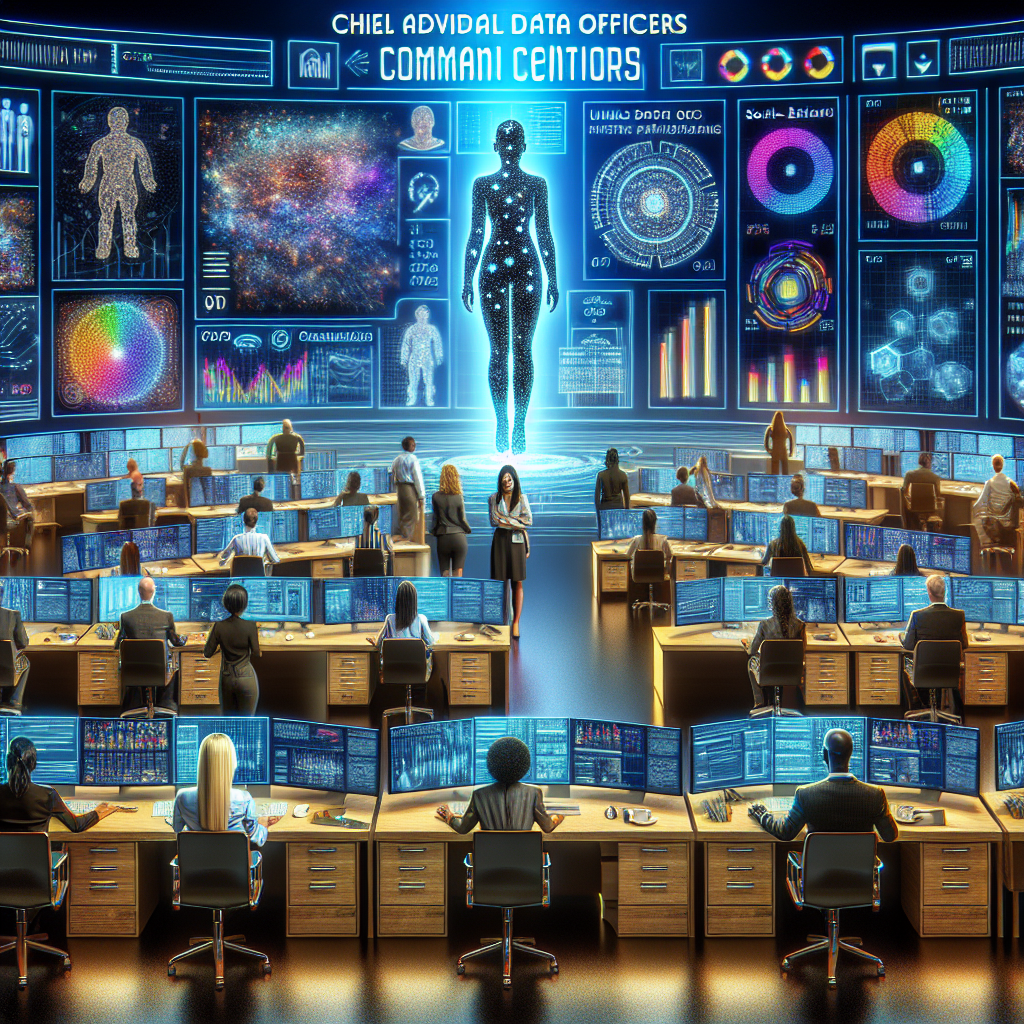In the rapidly evolving landscape of artificial intelligence, generative AI has emerged as a groundbreaking technology with the potential to revolutionize how organizations innovate and operate. At the forefront of this transformation are Chief Data Officers (CDOs), who are increasingly recognized as pivotal catalysts for integrating generative AI into the strategic fabric of future-ready organizations. Their role extends beyond traditional data management to fostering an environment where generative AI can flourish, thereby unlocking new avenues for growth and innovation.
Generative AI refers to algorithms that can generate new content, from realistic images and text to complex data patterns, by learning from existing datasets. This capability is not just a technological marvel but a business asset that can be leveraged to create value in unprecedented ways. CDOs, with their unique blend of technical expertise and strategic insight, are ideally positioned to harness the power of generative AI to drive organizational change.
One of the primary responsibilities of CDOs in this context is to ensure the quality and integrity of the data that feeds generative AI models. Since the output quality is contingent on the input data, CDOs must establish robust data governance frameworks that guarantee data accuracy, consistency, and security. By doing so, they lay the groundwork for generative AI systems to produce reliable and useful results, which is essential for gaining stakeholder trust and fostering an AI-centric culture within the organization.
Moreover, CDOs play a critical role in identifying opportunities where generative AI can deliver the most impact. This involves a deep understanding of the organization’s strategic goals and the potential applications of generative AI that align with these objectives. Whether it’s enhancing customer experiences, streamlining operations, or creating new products and services, CDOs must pinpoint areas where generative AI can provide a competitive edge and drive innovation.
Another key aspect of the CDO’s role is to bridge the gap between technical capabilities and business needs. They must communicate the benefits and limitations of generative AI to non-technical stakeholders, translating complex concepts into actionable insights. This not only helps in securing the necessary investments and resources but also ensures that generative AI initiatives are aligned with the broader business strategy.
Furthermore, CDOs must cultivate a talent ecosystem that can support generative AI initiatives. This includes hiring skilled data scientists and AI specialists, as well as upskilling existing staff to work effectively with these new technologies. By building a team with the right mix of skills and knowledge, CDOs can accelerate the adoption of generative AI and drive sustained innovation.
In addition, CDOs are tasked with navigating the ethical and regulatory challenges associated with generative AI. As these technologies become more prevalent, concerns around privacy, bias, and accountability come to the forefront. CDOs must proactively address these issues, implementing ethical guidelines and compliance measures to ensure that generative AI is used responsibly and in accordance with societal values.
Chief Data Officers are the architects of a future where generative AI is seamlessly integrated into organizational processes, driving innovation and competitive advantage. By championing data quality, identifying strategic opportunities, bridging technical and business domains, fostering talent, and addressing ethical considerations, CDOs are not just managing data but are shaping the very future of their organizations. As generative AI continues to evolve, the role of CDOs will only grow in importance, solidifying their status as the catalysts of tomorrow’s most innovative and resilient enterprises.
